On the afternoon of July 29, 2024, the “Seminar on Development of SFL and Construction of Foreign Language Disciplines in the Age of Artificial Intelligence,” jointly organized by our school and the YGYM Translation Service Co., Ltd., was successfully held at the Chang’an Campus. The seminar featured 15 distinguished deans and experts from renowned universities both within and outside the province. Experts and scholars gathered to delve into core topics such as effective strategies and methods for discipline development, innovative measures for faculty development, reforms in talent training models, cutting-edge exploration in professional construction, and standards and evaluation requirements for translation programs. The seminar aimed to advance foreign language education in the context of artificial intelligence. Professor Cao Ruonan, Dean of the SFL at Northwest University, chaired the seminar.
Firstly, Professor Hu Kaibao, Assistant President of Shanghai International Studies University and Director of the Corpus Research Institute, delivered a keynote lecture on “School Management and Discipline Construction Experience Sharing”. Professor Hu noted that in the age of artificial intelligence, foreign language disciplines face unprecedented challenges and opportunities. As AI partially replaces the functional use of language, the focus should shift to the humanistic value of language, aiming to cultivate versatile language professionals needed by the nation. He then shared notable achievements of the Corpus Research Institute at Shanghai International Studies University in the field of language data research, emphasized the need for foreign language disciplines to align with national demands and advance research on language intelligence, and provided high-quality data support. Drawing from his extensive management experience at Shanghai Jiao Tong University’s School of Foreign Languages and Shanghai International Studies University’s Corpus Research Institute, he offered valuable advice on team building, talent development, and scientific research. He stressed that schools should actively respond to institutional development requirements, leverage their strengths, lead with high-level projects, implement international strategies, publish high-quality papers in international journals, and apply for various teaching reform projects. Additionally, he recommended enhancing collaboration with internal and external units, adopting diverse and multi-channel approaches to seize the opportunities of the AI era, and paving new paths for the development of foreign language schools.
Subsequently, Professor Dang Zhengsheng, Vice President of Xi’an International Studies University, delivered a lecture titled “Construction and Evaluation Requirements of Translation Programs.” Professor Dang firstly shared the strategies and experiences of Xi’an International Studies University in the context of the dual challenges posed by artificial intelligence and new national requirements for foreign language disciplines. He also noted that XISU has been actively responding to trends in language industry transformation, continuously promoting innovation in language programs, and exploring the diversified development model of “Foreign Language +.” Professor Dang particularly highlighted their university’s interdisciplinary practice cases such as “German + Law” and “Russian + International Relations,” which have showcased the significant achievements the university has made in this exploration. He then detailed the six core issues in translation program construction: determining specialized training directions, building a dedicated faculty team, setting up a core curriculum system, configuring professional teaching facilities, implementing practical teaching methods, and certifying, constructing, and utilizing internship and practical bases. Professor Dang went further to provide a thorough introduction to the university’s implementation strategies and shared related practical experiences. Additionally, he offered an in-depth and professional analysis of the core elements of the translation program evaluation indicators, providing valuable references and insights for the attendees. At last, Professor Dang emphasized that under the new MTI training guidelines, translation program research must closely address specific issues in translation practice, reflecting a problem-oriented research characteristic to enhance the quality and level of translation practice and research.
After the lecture, the attending deans engaged in a free exchange with the two experts. They held a lively discussion around the core viewpoints and cutting-edge ideas presented during the lecture. Various perspectives were shared, and ideas were vigorously debated. The exchange was both rigorous and dynamic, filled with academic vigor, and provided the participants with profound insights and reflections. The seminar not only deepened the attendees’ understanding of the current state of foreign language discipline construction in the context of the AI era, but also clarified the direction and goals for the future development of foreign language disciplines.
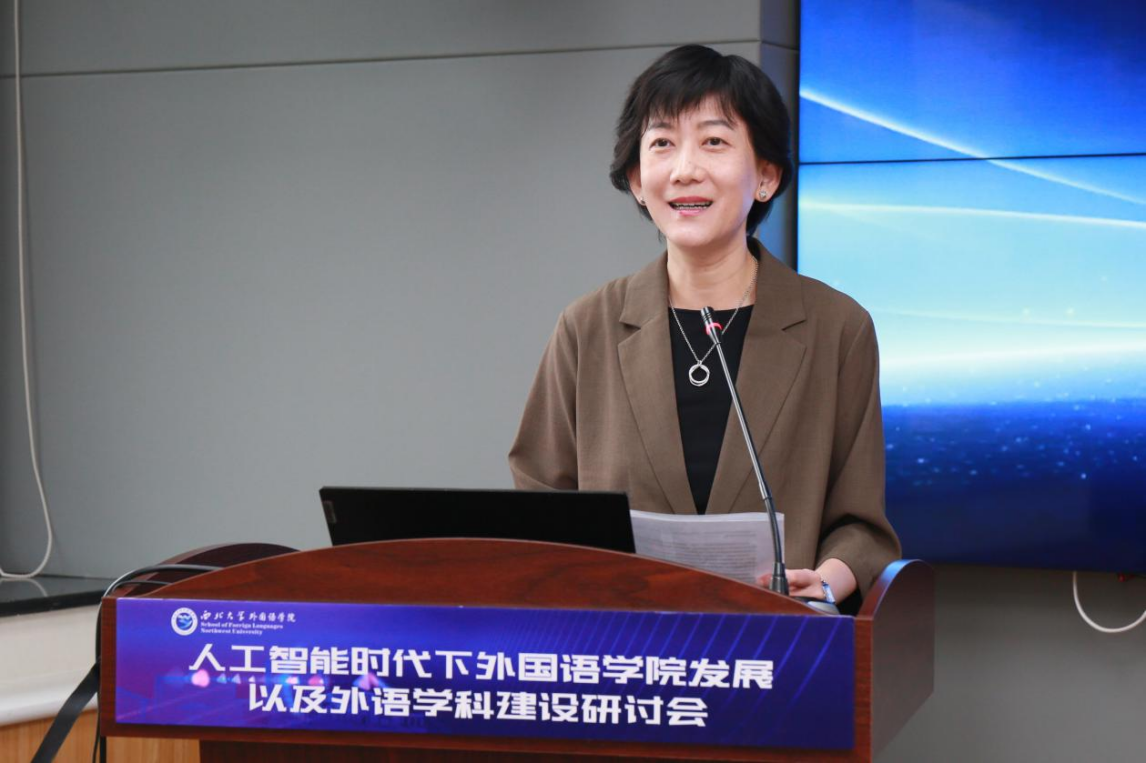
The host: Professor Cao Ruonan
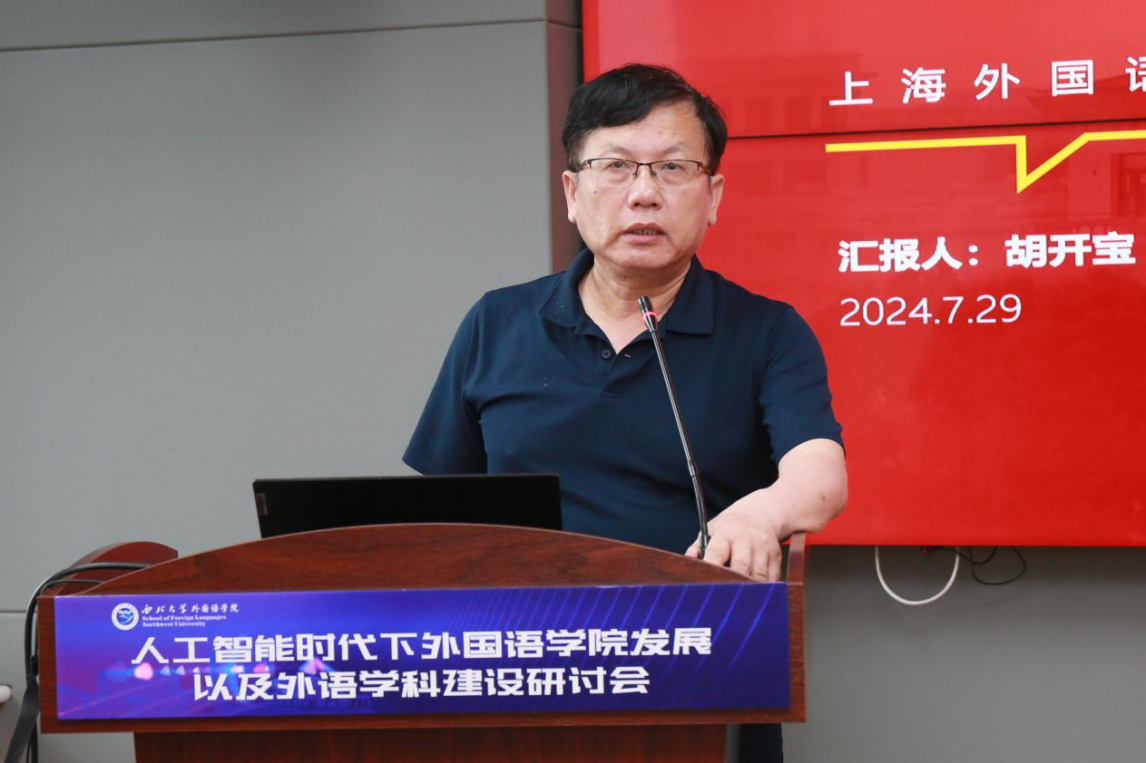
The speaker: Professor Hu Kaibao
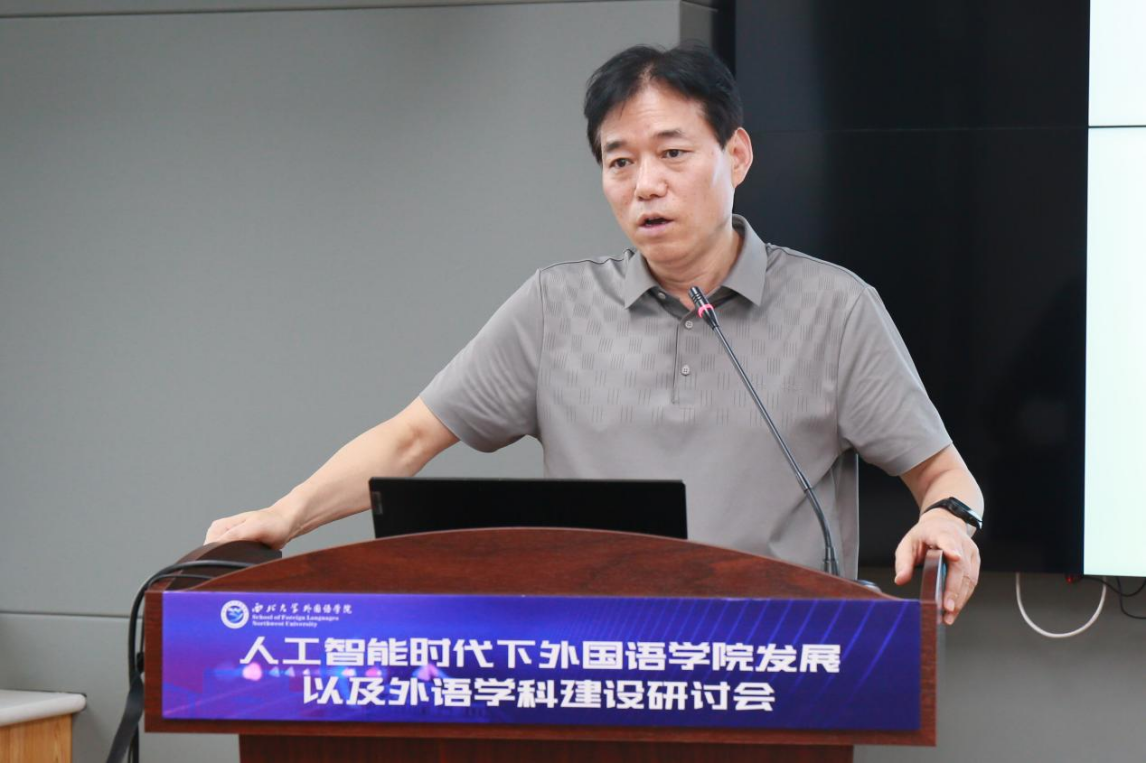
The speaker: Professor Dang Zhengsheng
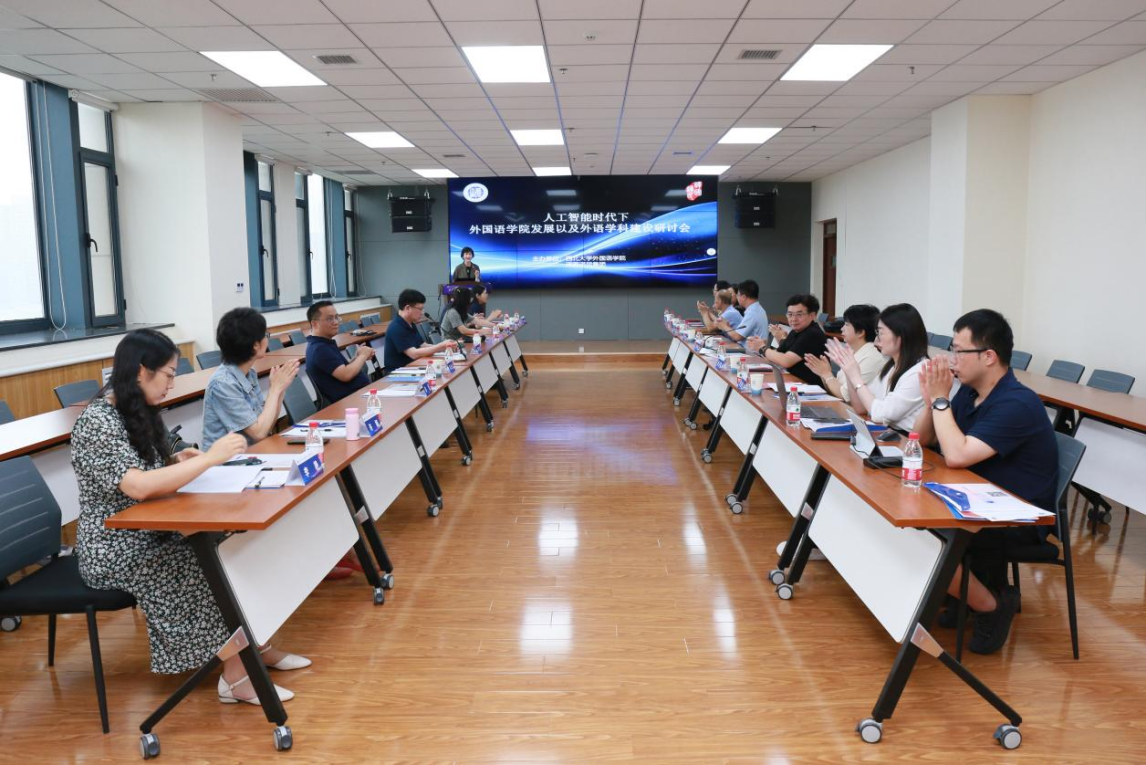
Council house
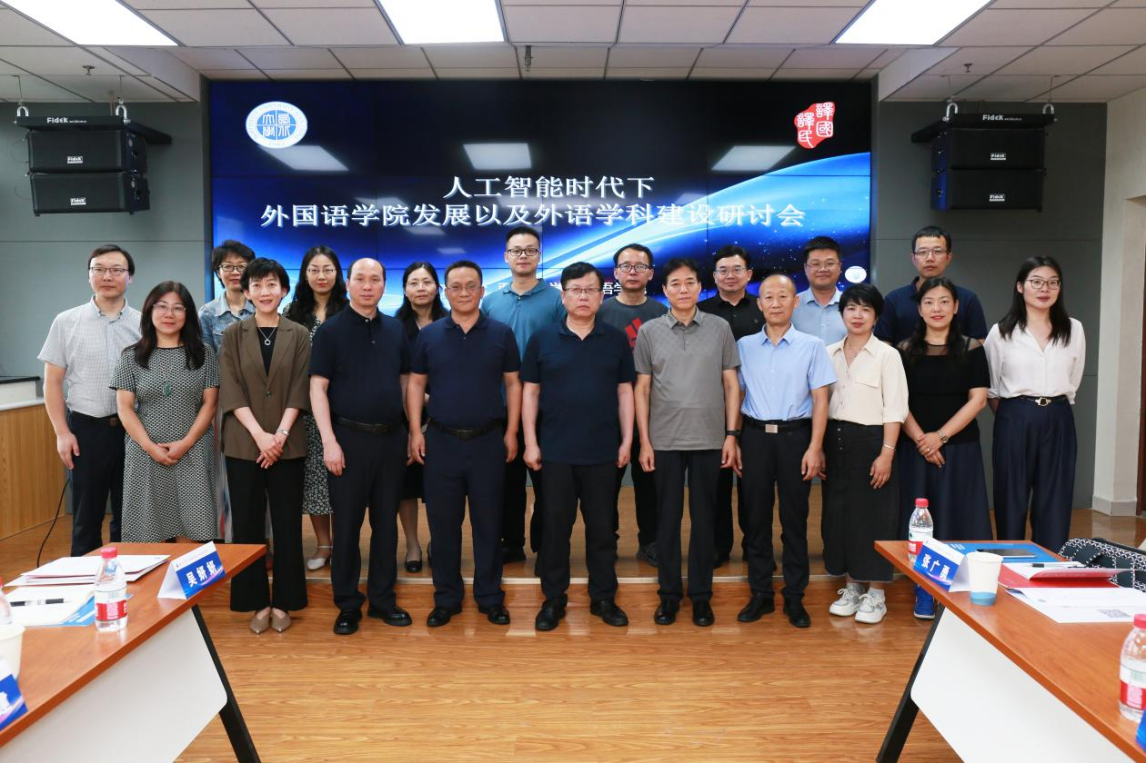
Group photo